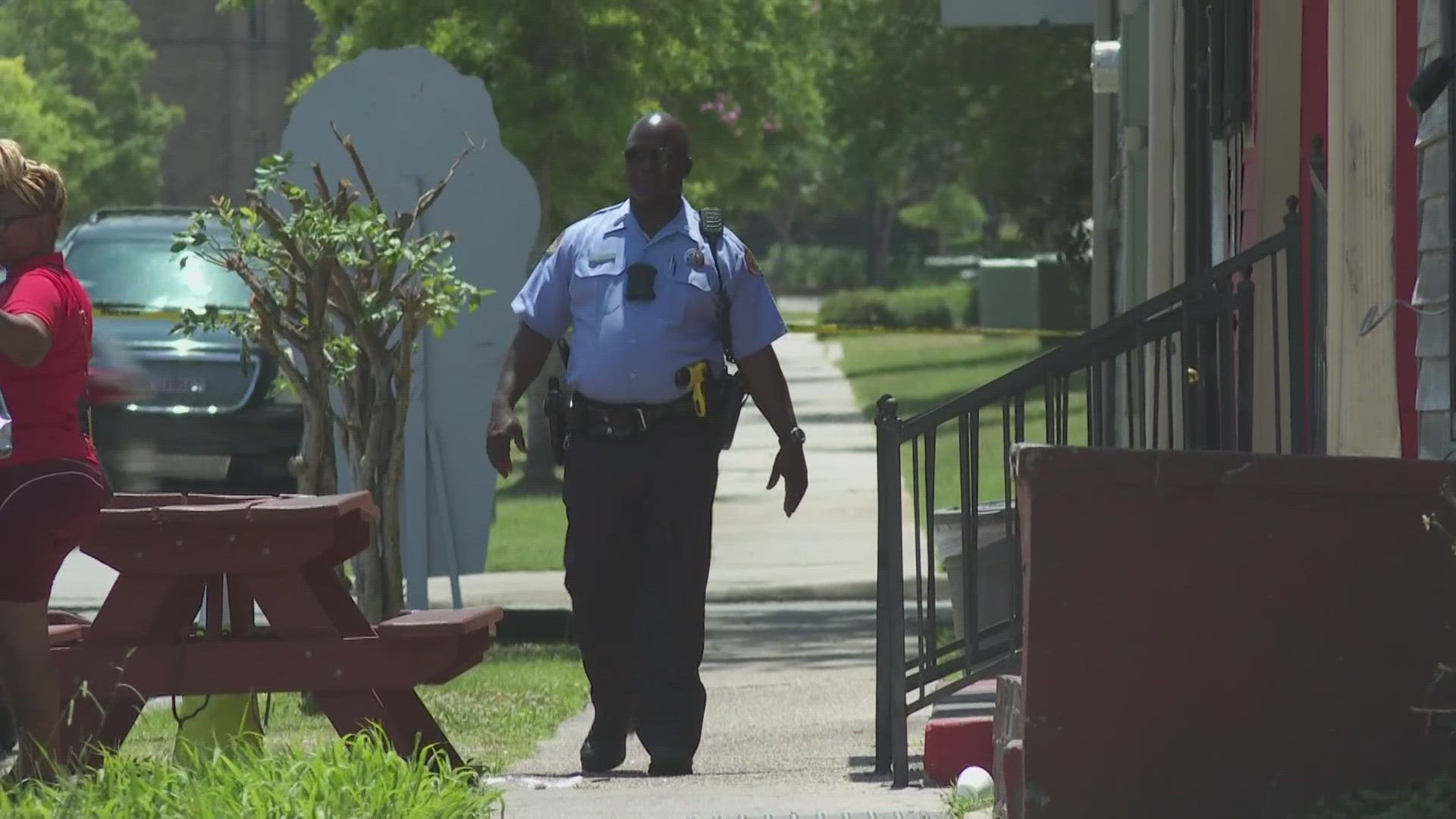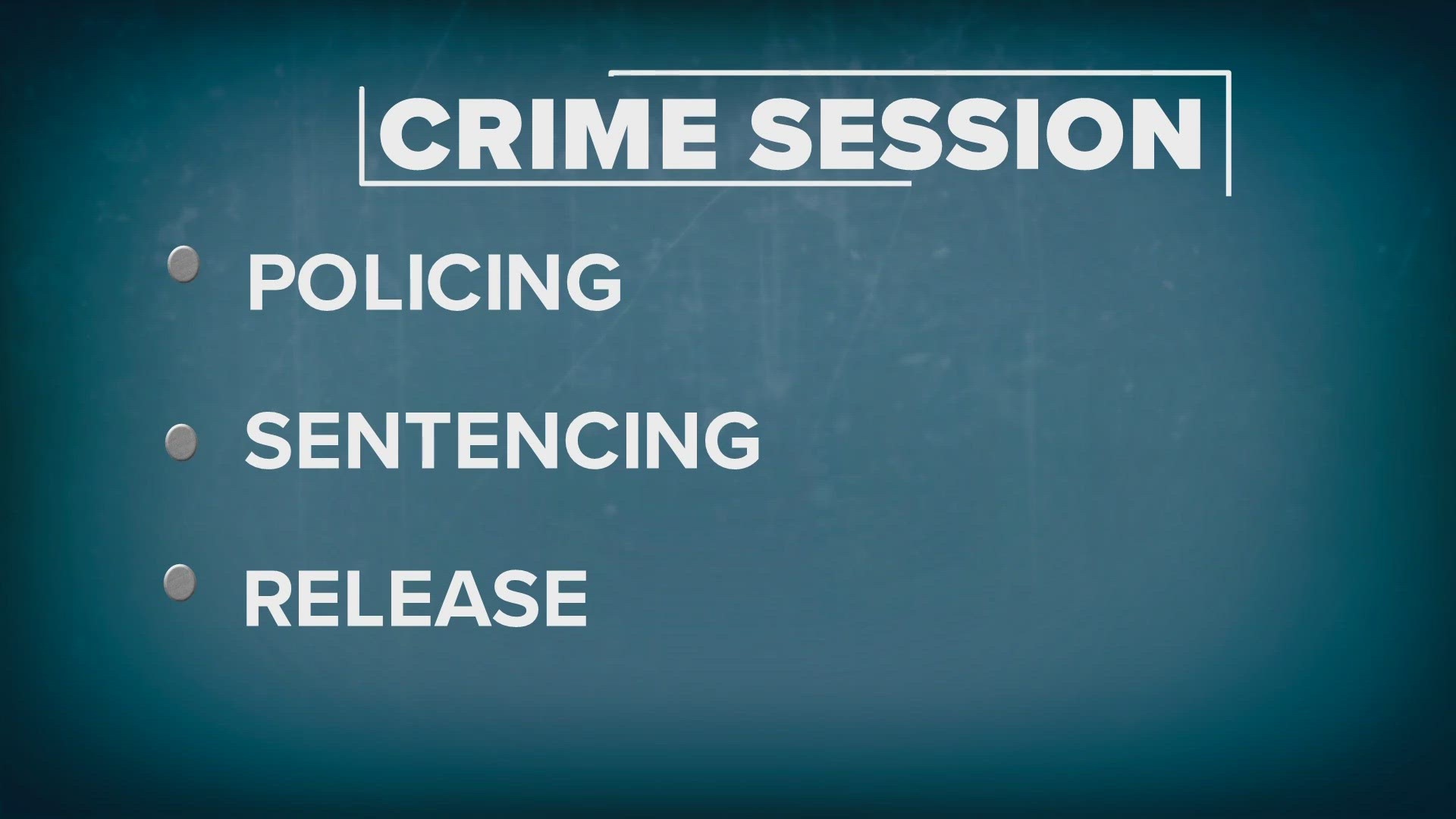BATON ROUGE, La. — Lawmakers heard some emotional testimony on day two of the special legislative session in Baton Rouge.
They got down to business, considering the first set of crime measures that could reshape Louisiana’s criminal justice system.
The House Criminal Justice Committee had a packed agenda as members took up a package of tough-on-crime measures.
One bill would make it tougher to get out of jail when new evidence is discovered that could clear someone of a crime after a conviction.
It would shorten the post-conviction relief timeline from two years to one.
Two men who spent decades in prison before being able to prove their innocence testified against the bill.
Sullivan Walters was freed after 36 years in prison for a rape he didn’t commit.
“Time limitations are very important,” Walters said. “I stayed in prison 36 years and two years after being convicted, I presented this evidence that showed I could have not been the perpetrator of this crime.”
Rep. Alonzo Knox, who voted against the bill, apologized to Walters for having to spend so much time in prison after his wrongful conviction.
“I can’t say enough of an apology for 36 years of your life as an innocent man taken away from you,” Knox said. “I understand those 36 years can never be replaced.”
Jerome Morgan spent 20 years in prison for a murder in which he was misidentified as the killer.
“By denying them fair access in the courts, to show that they were wrongfully convicted, innocent people who did nothing wrong will suffer,” Morgan said. “I was wrongly convicted at the age of 18, falsely arrested at the age of 17 of a murder that happened at a party.”
Despite the emotional testimony, the committee approved the post-conviction limitation bill and sent it to the full house for more debate.
Earlier, Rep. Laurie Schlegel presented her bill that would increase minimum sentences from two years to five for carjackings and from 10 years to 20 in carjackings where victims suffered severe bodily injuries.
“It’s not a complicated bill, but it’s one where we’re going to hold carjackers more accountable and help protect victims,” Schlegel told the committee.
She also introduced a bill calling for a 25-to-99-year sentence for anyone dealing with the deadly drug fentanyl in a manner that appeals to minors.
“This is a serious drug and if we don’t act, we’re going to have a lot of dead bodies and a lot of dead kids,” Knox said.
WATCH: WWL Louisiana's Alyssa Curtis breaks down the second day of Gov. Landry's Special Session on Crime below:
The committee advanced both of Schlegel’s bills to the full house.
The criminal justice committee also advanced a bill that would allow for nitrogen gas to be used in executions in the event lethal injection is unavailable.
Wednesday, the panel is expected to consider a bill eliminating parole eligibility for crimes committed by an adult on or after Aug. 1, 2024.


